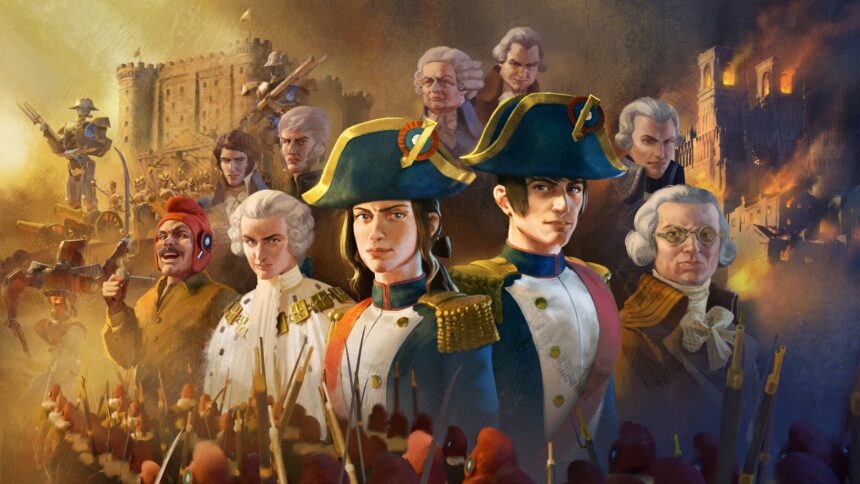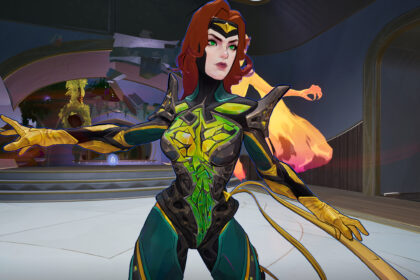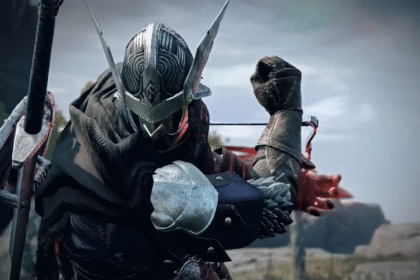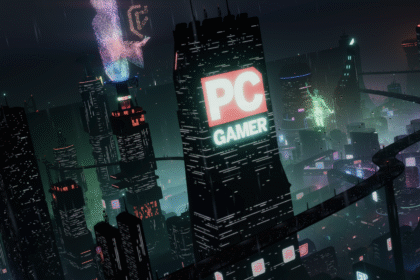The French Revolution was a time of overwhelming and quotidian violence. As Louis Antoine de Saint-Just—the revolution’s Angel of Death himself—put it in Georg Büchner’s play Danton’s Death, “Is it so remarkable that the stream of the revolution should at every bend and cataract cast up its corpses? … Are a few hundred dead bodies to hold us back? Moses led his people through the Red Sea and into the wilderness till the old corrupt generation was exterminated… Legislators! We have no Red Sea and no wilderness, but we have war and the guillotine!”
You know what would have made everything better? If they’d also had mechs.
This is the thesis of Bonaparte: A Mechanized Revolution, which puts you in the uniform of Bonaparte themself in the turbulent years of 1789 onwards. You know, Bonaparte! Cesar or Celine Bonaparte! The famous revolutionary hero(ine) who fought for either the Ultraroyalists, the Moderates, or the Jacobins depending on which choice you pick at the start of the game. Why, who did you think I meant?
The game bips and bops between different modes: A tactical, XCOM-ish thing where you’re moving your battalions and death-robots around and setting them on your foes, and a broader strategic view where you’re competing with other factions for control and influence over the different counties of France. Neither of these are hyper-complex, but they’ve got just enough moving parts to feel satisfying. Tactical battles ask you to think about your abilities and positioning at least to some extent, navigating behind foes to attack them from where they can’t riposte, while your strategic affairs are divided between straight-up invading places and bolstering your support with propaganda efforts.
The third mode is narrative—visual novel scenes where you have tête-à-têtes with the era’s notables and rally your votes to pass or reject laws in the National Assembly.
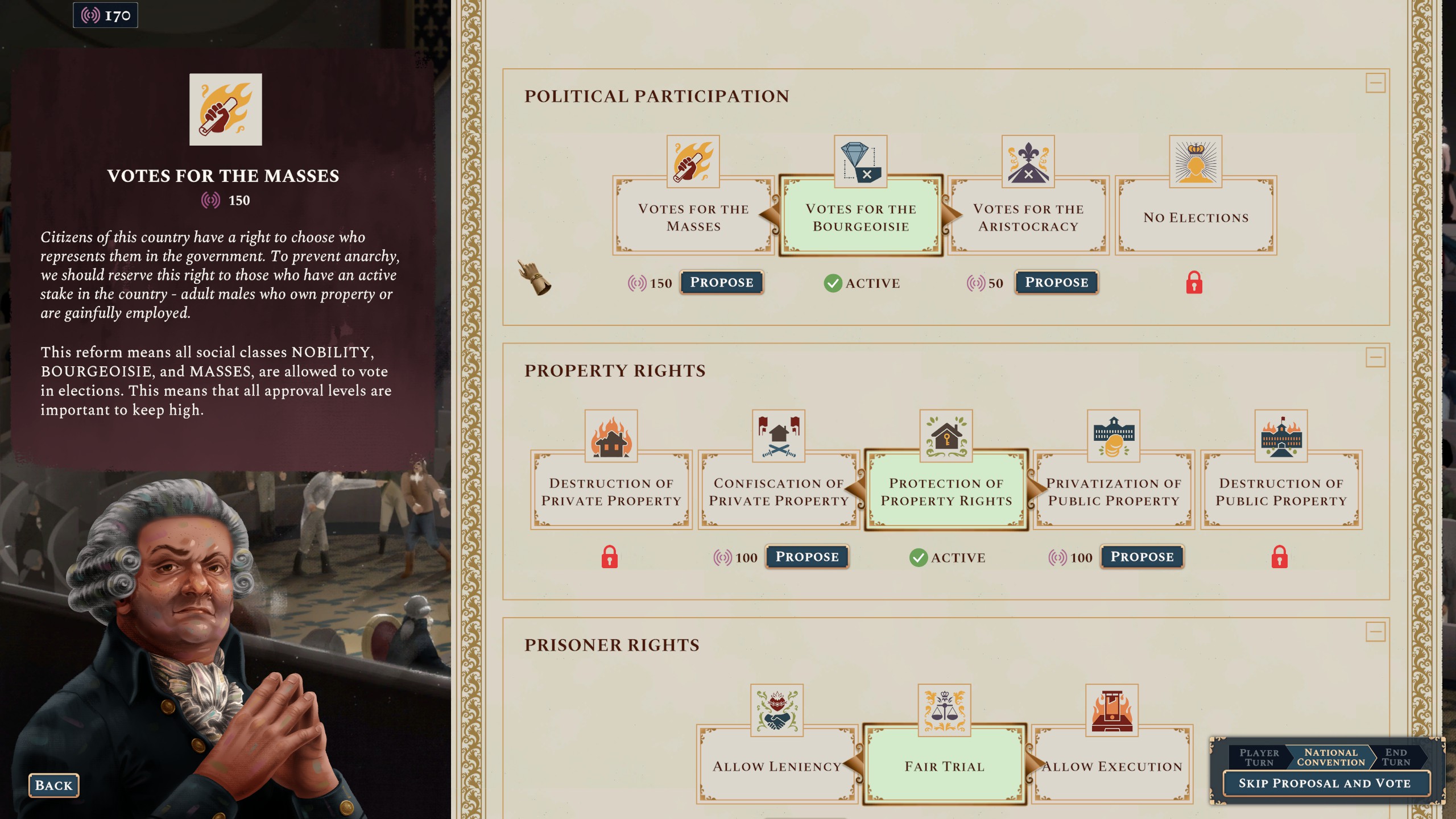
This is, if the towering battlemechs didn’t tip you off, an alternate history. But it nevertheless tries to hew relatively closely to the real outline and personalities of the French Revolution as it happened. The Comte d’Artois? Still an unpleasant reactionary. Robespierre? Still very keen on virtue and terror. Lafayette? Still very bad at seeing what is obviously happening around him. Events move inexorably, towards conclusions that feel inevitable.
Except, of course, you are Bonaparte, and you make your own history. I like the game’s tactical and strategic elements—they’re not complicated but they have just enough depth to feel rewarding when you sink your teeth in—but it’s the ability to write your own revolutionary narrative that keeps me coming back. You can sign on with any of the revolution’s three main factions—the Jacobin radicals, the Moderates, or the Ultraroyalists—and fight to establish their dominance over France.
It’s catnip to a particular flavour of historical-fiction-brained nerd (me), and deeply satisfying to that part of me that always enjoys imagining just what life looks like in the empires I’ve established in CK3, or EU4, or any other historical strategy game. Turns out the answer is ‘chaotic and bloody,’ but, look, nobody can reign innocently.
Read the full article here



